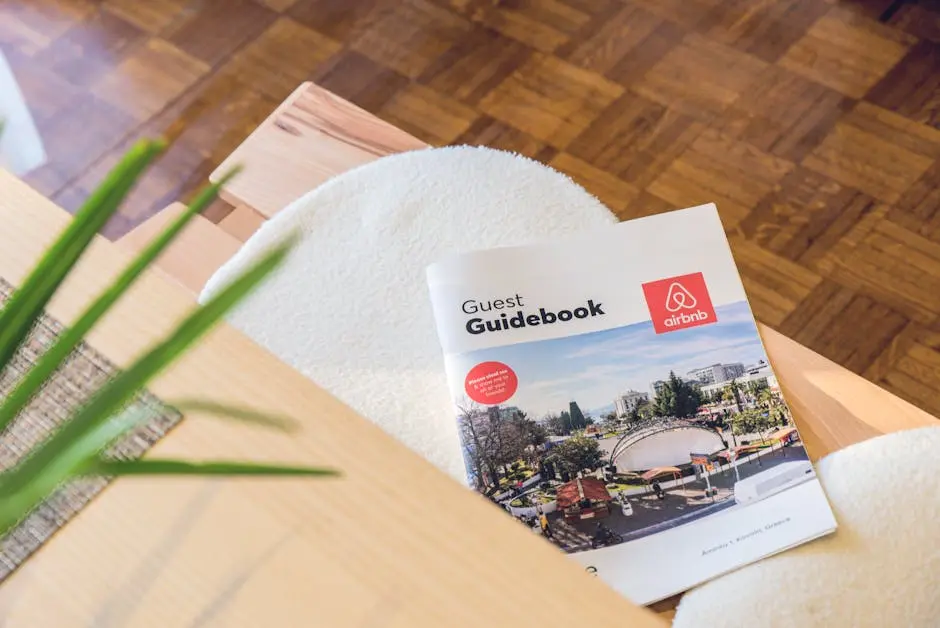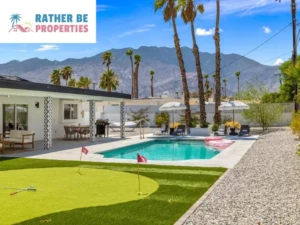The world of vacation rentals is an exciting space, where the art of hospitality management plays a crucial role in creating memorable experiences for guests. In this blog, we’ll dive into the key elements that make hospitality management essential in the vacation rental industry. From welcoming guests to ensuring their comfort, the nuances of effective hospitality management will be explored in detail.
Understanding the Role of Hospitality Management in Vacation Rentals
Hospitality management in vacation rentals serves as the backbone of an exceptional guest experience. It bridges the gap between property owners and guests, ensuring everyone’s needs are met and expectations surpassed. This role involves a multifaceted approach that includes marketing properties, managing bookings, and providing excellent customer service. Understanding this intricate dance is essential for anyone looking to thrive in the vacation rental industry.
At its core, hospitality management focuses on creating a welcoming experience from the very first point of contact. This means being responsive to inquiries, providing clear communication about reservations, and establishing a rapport with guests. A positive first impression can lead to positive reviews and repeat bookings, making it vital for property managers to hone their skills in guest interaction.
Equally important is the ongoing support provided to guests during their stay. This includes being available for questions, addressing any concerns promptly, and going the extra mile to ensure guest satisfaction. Such attention to service can set a property apart in a crowded marketplace where many rentals offer similar amenities at comparable price points.
Building a Strong Host-Guest Relationship
The foundation of successful hospitality management lies in building robust host-guest relationships. Engaging with guests on a personal level facilitates trust and leads to memorable interactions. Understanding guest preferences and personalizing their experience can create a profound emotional connection that lasts long after their departure.
An effective way to nurture this relationship is through pre-arrival communication. Sending personalized messages with information about the property, local attractions, and tailored recommendations creates a welcoming atmosphere even before the guests arrive. This strategy not only anticipates their needs but also demonstrates a keen interest in their comfort.
Furthermore, after-checkout follow-ups can enhance this relationship. A simple message thanking guests for their stay, asking for feedback, or providing a discount for their next visit fosters loyalty and encourages repeat business. It shows that hosts care about their guests beyond financial transactions.
Creating a Welcoming Environment
Creating a welcoming environment is an essential aspect of hospitality management that directly impacts guest satisfaction. The ambiance of a vacation rental sets the tone for the overall experience and can make guests feel at home as soon as they step through the door. From tasteful decor to thoughtful amenities, every detail contributes to the welcoming atmosphere.
Consider the importance of cleanliness; a tidy and organized space instantly puts guests at ease. Moreover, offering small touches such as fresh flowers, a welcome basket, or personalized notes can enhance the ambiance and make guests feel special. These gestures may seem minor, but they lead to lasting impressions.
Additionally, providing comprehensive guides about the property and the surrounding area can enrich a guest’s experience. A well-crafted welcome book containing local tips, restaurant recommendations, and emergency contacts can help guests navigate their stay with ease. When guests feel comfortable and informed, they’re more likely to enjoy their time and leave glowing reviews.
Ensuring Exceptional Customer Service
Exceptional customer service is the heart of effective hospitality management. In the vacation rental industry, service goes beyond just meeting basic needs; it’s about anticipating and exceeding expectations. Whether it’s tackling last-minute requests or providing local insights, a guest’s experience hinges on how well they are served.
Quick response times to inquiries, flexible check-in/check-out arrangements, and a genuine willingness to assist with any issues are fundamental to exceptional service. For instance, if guests face minor inconveniences during their stay, efficiently resolving these problems can turn a potentially frustrating situation into a positive experience, demonstrating commitment to guest satisfaction.
Moreover, proactively seeking guest feedback can further enhance service delivery. Regularly inviting guests to share their thoughts and suggestions shows that their opinions matter, enabling property managers to make necessary adjustments. When guests feel heard and valued, it often translates into loyal customers who are more likely to recommend the property to others.
The Importance of Attention to Detail
Attention to detail is a hallmark of effective hospitality management. In a competitive market, it’s often the small things that set a property apart and elevate the guest experience. From the quality of linens to the availability of essential toiletries, these details can signal a high level of care and consideration for guests.
For instance, ensuring the space is equipped with modern conveniences such as charging stations, high-speed internet, or streaming services can significantly enhance a guest’s comfort. Guests appreciate when their expectations are met or exceeded, and attention to such details can bolster a property’s reputation.
Moreover, thorough inspections before each guest’s arrival ensure that everything is in optimal condition. This proactive approach not only addresses potential issues but also instills confidence in the property’s management. When guests notice that hosts have gone the extra mile to care for the property, it reflects positively on their entire experience.
Leveraging Technology in Hospitality Management
In today’s digital age, leveraging technology is crucial for effective hospitality management in vacation rentals. Technology can streamline operations, enhance guest experiences, and improve communication. For instance, property management software can help hosts manage bookings seamlessly, track guest preferences, and organize schedules efficiently.
Moreover, user-friendly booking systems and intuitive property websites allow guests to explore options and make reservations with ease. Incorporating smart home technologies such as keyless entry, automated lighting, or personalized temperature controls not only adds to the comfort of the property but also enhances the overall guest experience.
Social media platforms and online review sites also play a vital role in hospitality management. Engaging with guests on these platforms can boost visibility and attract new clients. By highlighting positive reviews and showcasing the unique aspects of the property, hosts can effectively market their rentals and differentiate themselves in a crowded market.
Feedback and Continuous Improvement
In hospitality management, feedback is an invaluable tool for continuous improvement. Actively seeking guest opinions helps property managers identify areas of strength and weakness, ultimately enhancing their service offerings. Creating a culture of openness to feedback empowers guests to share their experiences, which can be analyzed and acted upon.
Implementing post-stay surveys allows hosts to gather structured insights regarding guest satisfaction. Questions might revolve around cleanliness, amenities, and overall comfort. By regularly collecting and reviewing this feedback, property managers can make informed adjustments and improvements, serving guests better in subsequent visits.
Additionally, using feedback to celebrate successes is equally important. When guests leave positive reviews, recognizing the efforts of the team boosts morale and fosters a commitment to exceptional service. Acknowledging the contributions of staff and celebrating improvements based on guest insights creates an engaged team dedicated to hospitality excellence.
The Lasting Impact of Exceptional Hospitality Management
In conclusion, mastering hospitality management in vacation rentals is not just about providing a place to stay; it’s about crafting experiences that resonate long after guests have left. By focusing on communication, attention to detail, and understanding guest needs, property managers can not only enhance their rental’s reputation but also create lasting relationships with their guests. As the vacation rental market continues to grow, those who embrace the art of hospitality management will stand out in this competitive landscape.





